Padma review: A self-sabotaging attempt at social commentary
The slow-burner is a cluster of poorly developed social messages surrounding infidelity that unfortunately contradicts itself
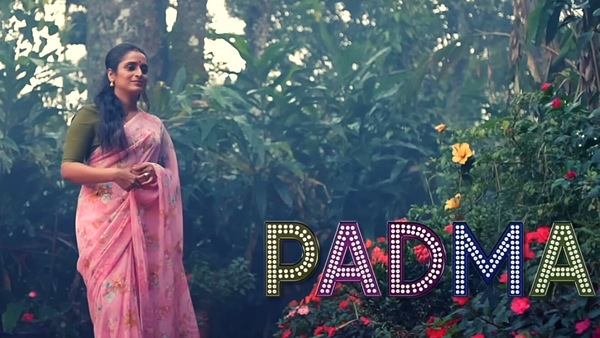
Last Updated: 12.05 AM, Jul 16, 2022
Story: In the upper echelons of the social hierarchy, psychologist Ravi (Anoop Menon) and his wife Padma (Surabhi Lakshmi) settle into their new home. Their seemingly happy marriage is strained when Padma is attracted to another man.
Review: It is a commonly acknowledged rule of thumb in storytelling that it is ideal to establish the characters and their arcs within the opening 10 minutes. In Padma, however, the film takes the entire first half to set the story in motion. There are several characters introduced within this timeframe, and the vast majority of them have nothing of significance to the overarching narrative.
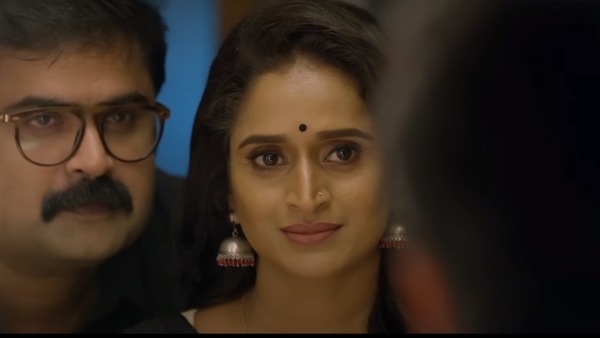
Abdu (Ambi Neenasam) and Jolly (Shruthi Rajanikanth), the servants working at Ravi and Padma’s house, are introduced very early on, but their roles are relegated to being nothing more than comic relief and have absolutely no impact on the narrative. In fact, one would imagine that Jolly was crucial to the plot considering the time spent introducing her to the audience. But her character completely disappears from the second act, which in itself is a very broad spectrum.
Coincidentally, this is the case for several characters in the film who are thrown into the narrative at random, including the narrator, who for some reason is represented as a statue of Cupid — part of the furniture in the large house owned by Ravi and Padma. If it’s a nuanced symbolic representation of something the filmmakers are trying to tell, it simply fails to connect in any allegorical sense.
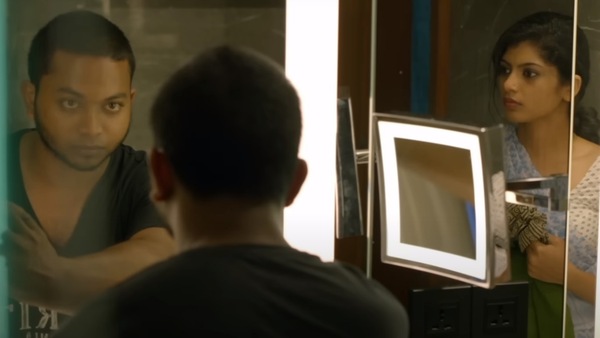
The film’s greatest setback is its inability to offer consistent pacing for the narrative. Each time the story is about to set itself, a song comes in at random with characters moving around in slow motion. It has most certainly extended the film’s runtime by significantly longer than it should be. But when the story does start finally taking shape, its very convoluted messages of social progression are shoehorned into the narrative.
The social commentary is incorporated in the film often through Ravi’s clients. And it’s unclear if he’s actually a psychologist or a sex therapist because all of his clients that make an appointment are either sexually frustrated women, a couple who are in a love triangle, or a school girl who is addicted to porn. While it should be applauded that taboo subjects are discussed quite freely in Malayalam films, it completely misses the point about the complexities surrounding sexuality, abuse, and porn addiction.
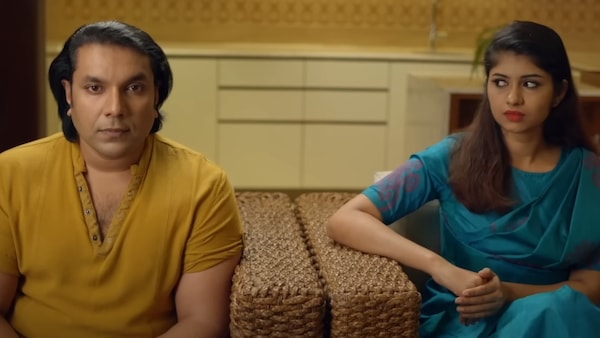
The woman who is unsatisfied with her husband is added to the film just to recreate a poorly executed version of the iconic Sharon Stone scene from Basic Instinct (1992). Of course, she was not afforded the opportunity to smoke a cigarette like Stone, even though she asks Ravi a couple of times if she could smoke.
In the case of the teenage girl who watches porn, the focus is actually on the fact that she watches porn and not on the fact that she was sexually abused by an adult. What is more alarming is the fact that an emotionally unstable and drunk Ravi tries to flirt with this girl, who is presumably a minor. In a more civilised society that would have put him in prison, added him to the sex offender’s registry, and be forever labelled a paedophile. But it’s brushed aside in the film as a momentary lapse of judgement from a heavily intoxicated Ravi.
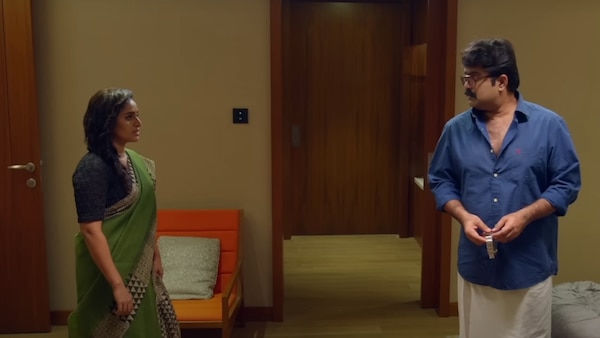
Feminism, gaslighting, and class elitism are some of the other themes explored in the film. And each time the story tries to support one cause, it steps on the other to make a point but ultimately fails on both accounts. It’s also borderline comical how the upper-class women are depicted in the film. The screenplay in particular when they appear on screen is cringe-inducing. It would also give the poorly depicted feminists in the highly problematic Sibi Malayil film, Kaliveedu (1996), a run for its money.
The film does have its odd bright moments, especially during the flashback scenes, where the story is more relatable and grounded. And there are also some great performances by the lead actors, Surabhi Lakshmi and Anoop Menon. The resolution to the film’s primary arc is also measured, and the references to Manichitrathazhu (1993) are surprisingly well done.
Verdict: The film is a convoluted collection of scenes and moments stitched together without a definitive structure. The plot is rife with poorly defined themes, and the supporting characters are severely under-utilised. While Menon does a commendable job as an actor in the film, his role as an auteur leaves a lot to be desired.
Subscribe to our newsletter for top content, delivered fast.

